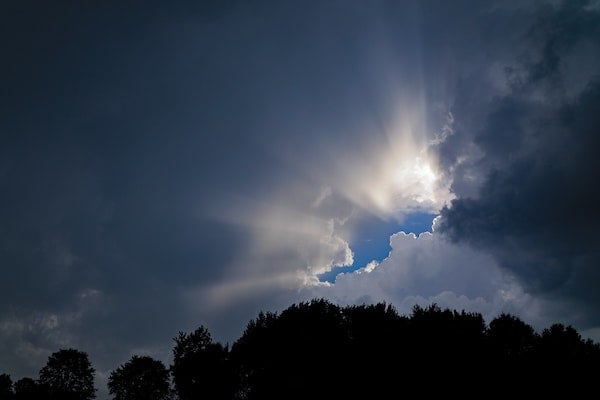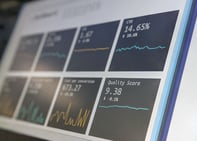Published on
Rapid Response: Delivering the Best Learner Experience Under Crisis

The COVID-19 outbreak has impacted higher education in a way that most are not prepared for. Institutions are looking for online solutions while trying to deliver the best experience possible to their learners. In this interview, Linda Lujan, president of Lamar Community College, discusses how coronavirus mitigation has impacted the residential community college, reflects on its impact on students, staff and faculty, and shares her thoughts on how institutions, and higher education more broadly, need to adapt to this new normal.
The EvoLLLution (Evo): What do you think higher education’s new normal will be in the wake of the COVID-19 outbreak?
Linda Lujan (LL): We need to look at what the new normal will be for the globe. The magnitude of what has happened — and its ripple effect — is going to affect every industry, country, community and every family in ways that none of us can predict. The new normal is really going to be evolving for all of us, and that interdependency higher ed has with so many different industries has to be top of mind.
At the end of the day, we’re still going to have students. But I’m not sure we’re going to have a public appetite in the near future for face-to-face interaction. Depending on how you think, you’re either expecting it’s going to snap back to normal really quickly — and you’re in for a big disappointment — or you’ve already shifted to the idea that nothing’s going to be the same. It’s all going to be different.
So how do we adapt to that?
Higher ed really has to reflect on this pandemic’s outcomes. One, there’s undoubtedly going to be a recession. Two, we’re going to see some enrollment dips. And third, we need to get comfortable with “remote learning.” This type of learning is going to become more attractive to the public because there’ll at least be some certainty that students won’t be sent home in the middle of a semester, and classrooms won’t be interrupted. We really need to start thinking about how can we react to something like this again, but more importantly, how we adjust to a world that’s had another major shift. My work as a leader is to help my team and followers start thinking differently, knowing that everyone has their own perspective on how this will all change our lives.
Evo: Being a residential community college, how has LCC responded to the COVID-19 outbreak?
LL: This pandemic hit us at an interesting time in the U.S. since we’re all sending students off to spring break. At most residential campuses, some students don’t leave — either because of athletics or because they’re in a unique program without the break. We are dealing with a mix of those who stayed only to discover their athletic season ended and those who went to hotspots and therefore may have been exposed.
What’s the intake process? Then, how do we deal with the parents on both ends of the spectrum. There are the parents who think their kids are safer in a small, rural community than they are at home, and then there are parents who wanted their kids home the second they heard they were closing the Hawaiian border.
Evo: How are technical and career programming affected by the shift to remote learning?
LL: We’re juggling with the emotions and the logistics. Most of our students are turning to the remote learning model, but it doesn’t work for everyone.
Students in career and tech ed programs — things like cosmetology or welding — can’t go to a remote mode. But we do need to applaud not just Lamar Community College faculty but faculty around the country. They’ve really tackled this unique problem.
They’re not online experts, but they’re looking at the problem in a way that gets their students to demonstrate competency with everything changing. For example, our cosmetology instructor had students take their mannequin heads home to continue their work and then send her video updates. Our welding instructor has worked with local communities to see if students can safely do mini internships among them.
The faculty has a lot of innovative spirit and creativity to meet those new problems and say, “I can figure it out.”
Evo: Things are changing extremely fast, so how are these changes being communicated to learners, faculty, and staff?
LL: Communication is almost always an issue, regardless of industry. Now we have this added challenge of the situation changing quickly. What we talked about yesterday is no longer what we’re doing. People are being flooded with information and mixed messages across multiple channels, and no one has had a chance to slow down and communicate strategically. We’re using emails, webpages, emergency alert systems, texting, and we’re picking up the phone to contact people any way that we can.
The most important thing we’re trying to focus on is not saying two different things through two different channels, being strategic on what channels we use for what particular information.
For example, we decided our emergency alert is only going to be used for bona fide emergencies, even though it’s the fastest way to get to everyone. If we start conditioning people to use that channel for all information, no one will pay attention when a real emergency alert comes through. We’ve had to make strategic decisions on the fly. Some of the team has a higher tolerance for it, but for others it’s really difficult. They need to process, think, and plan — we just haven’t had the time to do so.
Evo: In these earliest days, how have your learners, faculty, and staff accepted and adapted to the changes that are being thrown at them?
LL: I’m really lucky to have a wonderful college culture. It was here when I got here, and my biggest responsibility is to continue to foster and cultivate that culture. The group rolls up its sleeves and pitches in. No one employee group thinks they’re better or more important than another. We sit down, we get it done. At the end of the day, it’s on my watch and I’m accountable for the big decisions, but the fact that I’ve got such a collaborative group and such a great culture is really a gift.
The one thing that troubles me is the student experience; it’s changed so dramatically, whether at a university, four-year college, residential campus, or commuter campus. The experience the students had in their second semester, fourth semester, or senior year has since changed. That’s a loss that they’ll never get back and it’s hard. I think it will be a defining moment for that generation.
Evo: Will this shift in student experience put us in a position where we start rethinking some of those fundamental characteristics that are needed to deliver a strong learner experience?
LL: Absolutely, but we don’t have time right now to do that. For example, at a residential campus we have student events scheduled. We were bringing a hypnotist and a juggler. Students were going bowling and to the movies. Even though some of them are still here, those experiences are gone. Over time, we need to think about how we can create them virtually.
It’ll be interesting to sit down and breathe when this slows down, and we can look at what we learned, what new things we can try that we wouldn’t have done without this crisis pushing us to.
Evo: What are a few of the lessons about disaster preparedness that you’ve taken from this experience so far?
LL: You cannot plan enough. It’s better to plan and prepare for the worst because being overprepared is not a bad thing. Getting people to invest in worst-case scenarios is hard work because we all have our day jobs, and all of a sudden here you want the team to think about the “what if scenarios”. But it’s about being prepared and knowing who you can rely on — county health departments, state emergency preparedness teams, faculty who jump in and say, “We can do this”. It’s fun to see the heroes emerge. But without that pre-thinking and some of that pre-planning, it’s hard to get the traction you need at the speed you need it.
There are three keywords that we’re going to have to use over and over: flexibility, adaptability, and resilience. If higher ed walks away with those three words being part of its working vocabulary, I think that’s a win.
In the end, this is what I signed up for when I became a college president. The safety of students and employees is on my watch. It’s a heavy responsibility and there has not been a day that has gone by without me feeling its weight. It’s what we do as leaders
This interview has been edited for length and clarity.
Editor’s note: This piece was recorded on March 19, 2020.
Author Perspective: Administrator
Author Perspective: Community College



